As of yesterday, May 20, LWON has been alive for five years. LWON is a little surprised at this and pretty pleased with itself. In celebration, two of our brilliant alumni wrote guest posts listing the Top Five Things They Wanted to List the Top Five Of. Today, Five People of LWON announce the best sciences to write about, and the worst.
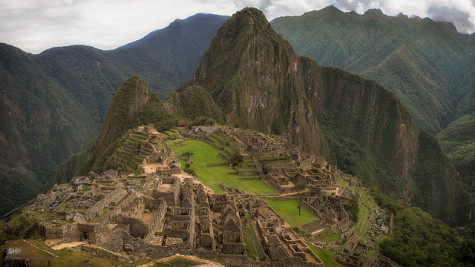 Craig:
Craig:
Archaeology: best. It is pure inquiry, unadulterated curiosity, a science of imagination on a perfectly human scale. To write about it, if you can handle the backbiting and occasionally irate, red-faced scholars, feels like liberation. You can look across an empty field and out of its slight rises and depressions recreate a city. It’s like Minecraft, only real. Or kind of real. As I’ve heard from many archaeologists studying a piece of edged rock or bone, Is it real? (Archaeology is where the drinking happens. A couple months ago I spoke to a symposium of Alaskan archaeologists and afterward about 50 of us dropped into a rowdy Anchorage bar where shootings and stabbings were weekly. The archeologists took the place over and before midnight I’d auctioned off my boxer shorts, and I had to produce in situ. I held interviews at the bar that night where a Russian archaeologist who’d moved to Alaska slammed vodka with me and stated, “Migration is a sickness!” How could you not love that.)
The worst: physics. It’s the numbers. I’m sorry. It’s more math than anything, and math is hardly a science. I mean, if you are Ramanujan, Fermat or Pythagoras, you’ve got a hypothesis to prove, and you use a proof as an experiment to get to your conclusion, it’s all scientific. But if you’re like me and you have to count on your fingers, you are out of the game. A former astrophysics faculty at University of Colorado once drew out an equation for me to prove a point and asked for me to solve it, as if it were plain as day. “Zero?” I asked. “No, the answer is infinity,” he said. “What’s the difference?” I asked. He just stared at me. (Maybe physicists drink, too, and maybe they demand speakers produce their boxers. Maybe it’s all the same, but I’m still trapped in that moment with the astrophysicist wondering how I could mistake everything for nothing, a conundrum archaeology and physics may have in common.)
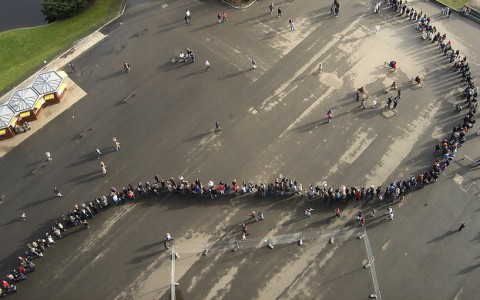 Sally:
Sally:
Best is Behavioral Economics: If you hate physics, you’ll REALLY hate economics. They can’t agree on the meanings of basic terms and their predictions are worth a bucket of warm spit (an erudite commenter in that io9 piece quotes Laurence J. Peter: “An economist is an expert who will know tomorrow why the things he predicted yesterday didn’t happen today.”). But behavioral economics is different. Equal parts cognitive science, psychology, and neuroscience, this field is bewitching for its ability to identify the cognitive traps we can’t help falling into. Economists and psychologists have broken down the worst angels of our nature to explain why we do such dumb things: confirmation bias, availability heuristic, the sunk cost fallacy. Once you understand them, it’s super fun to identify examples in your daily life. On the crowded, heaving South Bank one day, I passed a cruelly long line for a public bathroom. Having just exited a deserted loo around the corner, I decided to be a good samaritan and informed a lady around 10th place in line about the empty loo a few feet away. She declined to move. “I’ve already waited this long,” she said with a note of resignation. Ladies and gentlemen, the sunk cost fallacy!
Worst is Neuroscience: It’s the worst science to write about because to do it well, you need to have a decent grasp of physics, biology, chemistry, psychology and hell probably philosophy. Because what is a synapse anyway? Chemistry, right? But what is the fundamental unit of human consciousness? Is it the neuron? Don’t look too closely at this question. I can give myself a panic attack on demand by trying to contemplate how the phenomenon of consciousness arises from the combination of our senses. Because couldn’t consciousness arise without senses? Could a human being born without any sensory input develop into a conscious entity? But how would they communicate with you to tell you? And now we’re into artificial intelligence, so you may as well throw mathematics into the mix as well. And ethics. Pass the brown paper bag, please. But the most important reason a neuroscience writer should be armed with this cross-disciplinary knowledge is so that s/he won’t be bamboozled by fast-talking charlatans who tell you they can reverse engineer the human brain in 10 years. Or that your consciousness can be transferred to a hard drive to let you live forever. To paraphrase Carl Sagan, to write well about neuroscience, one must start with the universe.
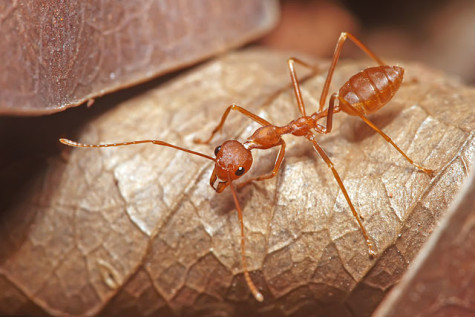 Jennifer:
Jennifer:
Best: Entomology and Herpetology, because bug and reptile guys and gals (mostly guys) LOVE to talk about their work, can go on and on about the coolness of their particular critter, and are more than happy to share photos, field time, anything to get others to love bugs or reptiles as much as they do. They are geeks (that’s a compliment), and geeks make for great sources.
Worst: Physics and Chemistry. I struggled enough with these in high school that I should have known not to get near them again. I like writing about things I can see clearly, and that I can explain in a way that’s fun and exciting and accessible. All that theoretical junk is confusing and hard to explain, and the physicists I’ve talked to are incapable of dropping down to my level. I’ve had them become rather condescending, in fact. I find it similarly impossible to write with enthusiasm about chemical bonds and the like. Animal behavior I get; chemical behavior isn’t quite so inspiring to me. Chemicals aren’t cute at all. What I like most about the periodic table: I like letters. Letters are nice.
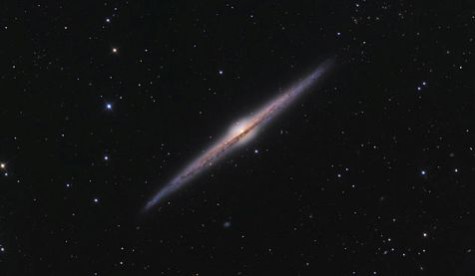 Ann:
Ann:
Best science(s) to write about: astronomy and geology. Any given story in either field starts at The Beginning (of the universe, of the earth) and proceeds in an orderly, chronological, rational manner to the present. Both have evolved from sciences which collect sparkly things and arrange them depending on their characteristics in many ways until finally the underlying patterns become clear and they’ve turned into coherent stories. That is because the patterns in both fields are based on physics. And physics — despite what you may hear from any other LWONian — has the great and abiding virtue that the writer doesn’t have to get from Plot Point A to Plot Point B by making shit up.
Worst science to write about: psychology. Start with any question involving human behavior or motivation and try to find an answer. Google it, GoogleScholar it, search the PsychLit database, read the titles and abstracts. Your question will probably be profoundly interesting: Why do siblings stake out their own territory? Why do some people in a community accept what the community offers but avoid offering anything back? How long does grief last? Those are just the most recent questions I’ve looked up. Every single answer you find will be one you could have figured out if you’d arrived yesterday from Mars, taken one look around, and said the first thing that came to mind. A science writer writing this stuff feels like an idiot. Leave it to fiction writers, they do it better.
Helen:
Best: Ecology and Evolution. In my experience, stories about these fields are the stories that are the most likely to lead to me hanging around outdoors while smart people poke at frogs or reindeer or krill or something. I don’t know if you’ve ever had the pleasure of following along behind while a very wise and thoughtful person collects frog eggs by snipping careful polygons out of the leaves overhanging a tropical pond, so I’ll tell you: It’s really cool and an incredible privilege, and I can’t believe so many people have let me hang around, watch them work, and wait for them to say something interesting. Best of all, the things they’re learning when they do this work tell us so much important stuff about what happens to living things as time passes.
Worst: Ecology and Evolution. I love these sciences. I love them so much, I spent a lot of time studying them and collected a few minor degrees. This gives me the classic problem of someone writing in their own field: I know too much. If the mere mention of predator-prey dynamics doesn’t send Lotka-Volterra curves swooping in front of your mind’s eye, well, it’s not my fault that you’re ignorant and I don’t know why I should have to do anything to help you. (In case it is not clear, this is entirely the wrong attitude and I have always gotten past it sooner or later, sometimes with help from editors.)
______________
If you’d like, here’s LWON’s First Anniversary and its Second Anniversary. The Third and Fourth didn’t seem that interesting.
______________
Machu Picchu – Shawn Harquail, via Flickr
queue – Alexandre Duret-Lutz, via Flickr
red weaver ant – Muhammad Mahdi Karim, via Wikimedia
galaxy – Ken Crawford, via Wikimedia
reindeer – Helen Fields, via her computer
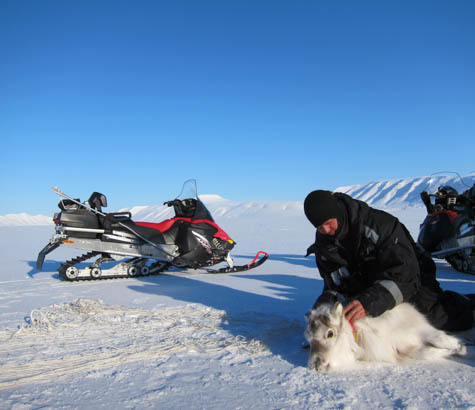
I hope you plan to follow up with a “Which type of science writer are you?” infoquiz! I’m pretty sure I’d be an Ann-type: “…the writer doesn’t have to get from Plot Point A to Plot Point B by making shit up.” Amen!
Exactly, Stephen. We’ll form a club called The Friends of Order. (I think really such a club does exist.) (And if so, may I apply for membership?)
That was fun! And informative, in a weird and wonderfully irreverent way. I enjoyed it so much that I subscribed to the e-mail newsletter.